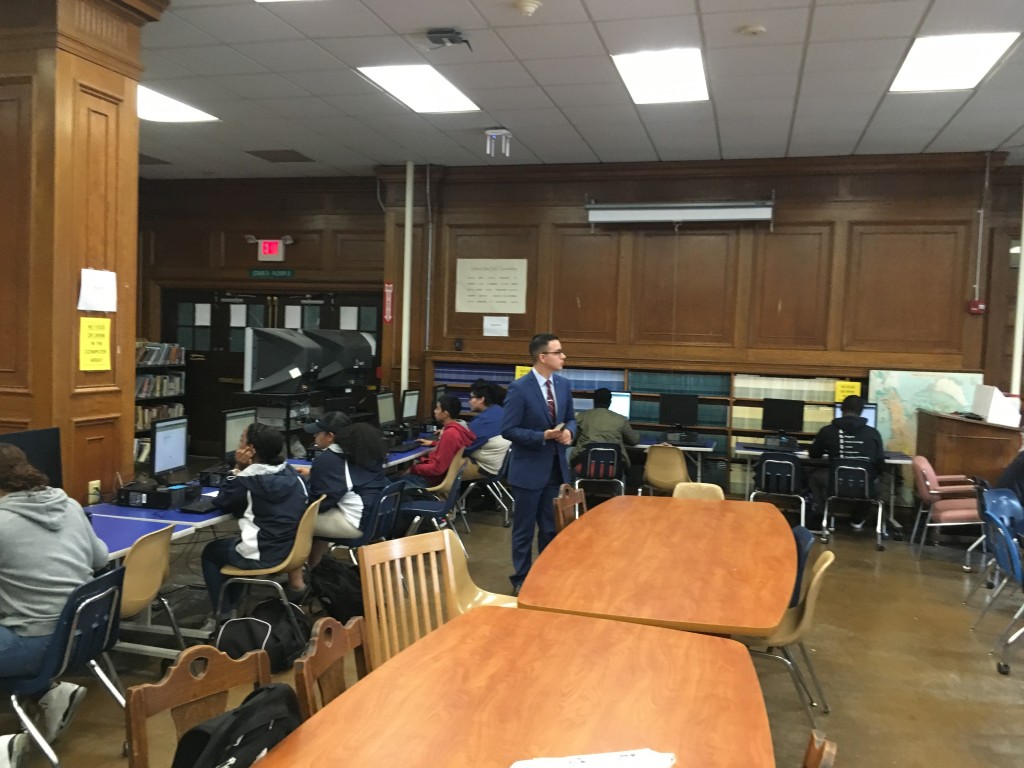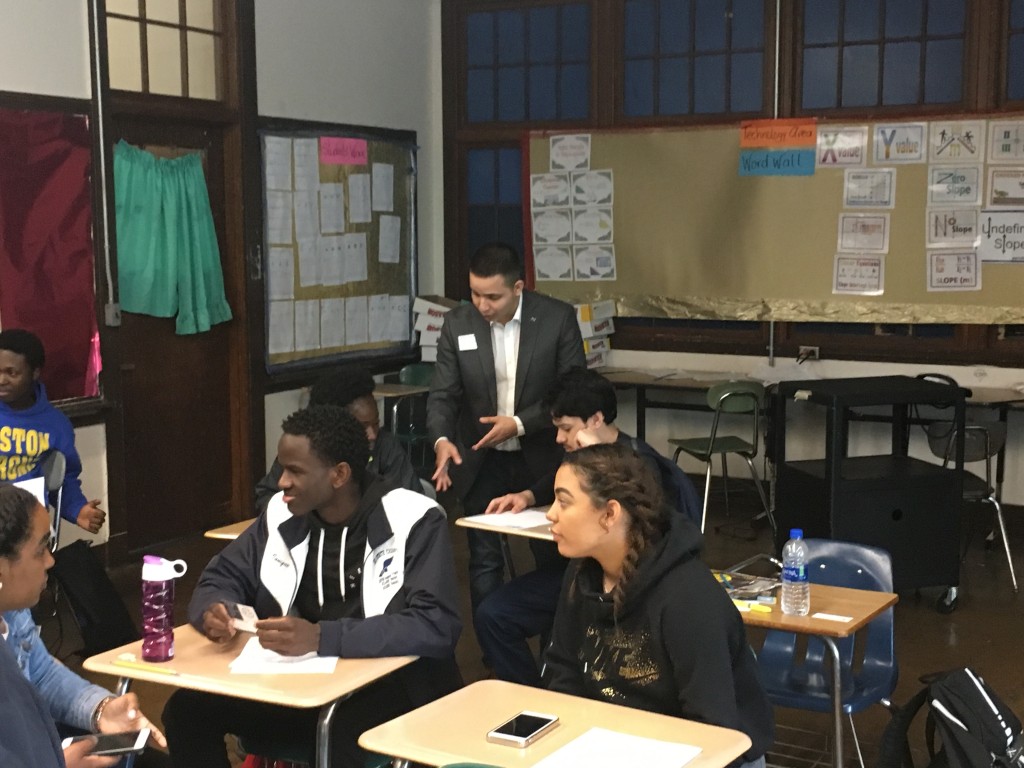Today’s Class: May 18, 2018
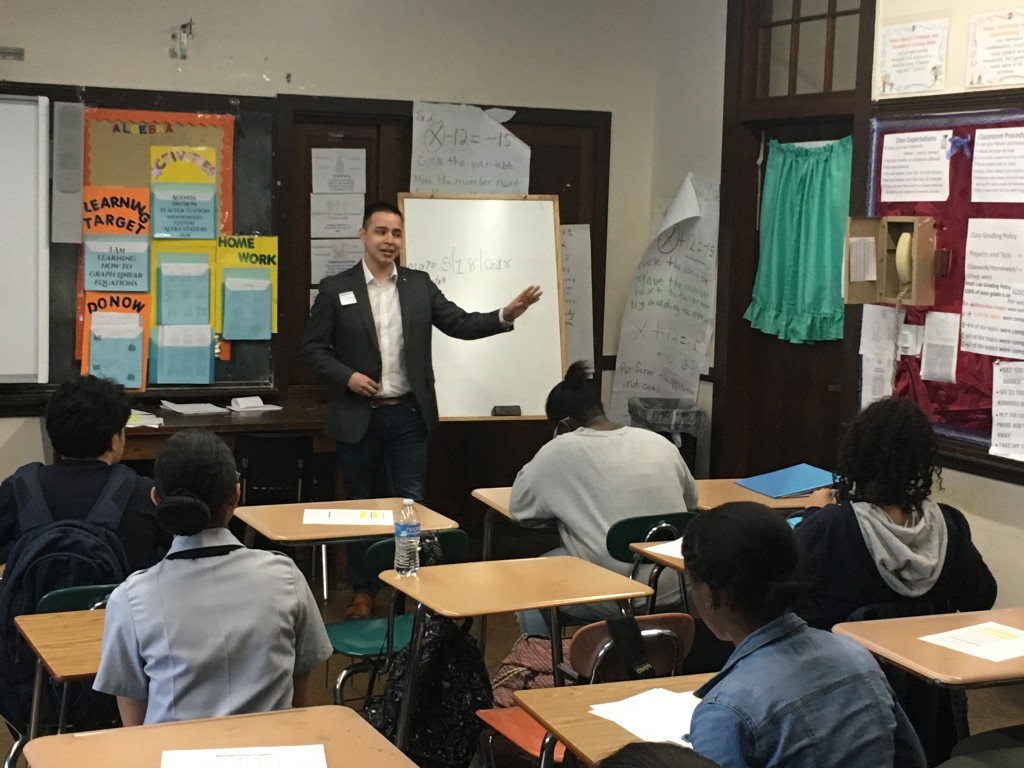
Ray Nunez from Leadership Rhode Island returns to the Hope Life Skills class to explain the findings of the strengths assessment survey students completed on April 27th, 2018.
Ray Nunez, Program Coordinator at Leadership Rhode Island,
returned to the friendly environs of the Life Skills class to review the findings of the Clifton Strengths Assessment administered to the students during an earlier class on April 27th.
Each student was given a packet of information today listing each student’s 5 most prominent strengths with an explanation
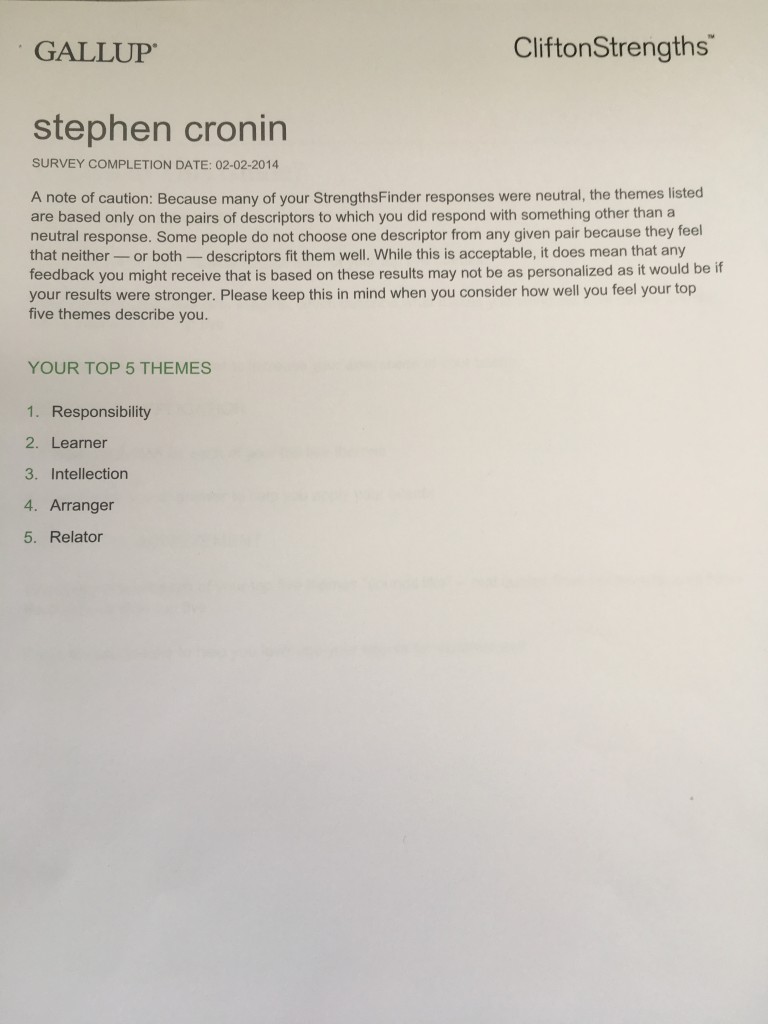
Please note, at the end of this blog, there is a list of all the 34 potential strengths developed by Dr Clifton in the Gallup strengths’ assessment.
of what each strength means and how it is exhibited in their life.
“The strength assessment you’ve recently completed has been given to thousands of employees at Rhode Island companies” Ray Nunez announced to today’s class.
“Successful companies focus on the strengths of each employee
not their weaknesses. It’s in the company and individual’s best interests when people are in positions of responsibility which exploit what each person is good at. When there is
a focus on people’s strengths, companies benefit with higher productivity and employees feels good about their success
at their job. Whether your strength is futuristic thinking and you’re charged with developing a company strategy and business plan 3 to 5 years into the future or you have a competitive strength and your responsibilities are managing teams of people and the projects they’re working on,
placing people in positions for success creates win-win;
win for the company and win for the individual! Everyone feels good and, hopefully, benefits from this success with strong corporate profits as well as job satisfaction and wage fairness. Win-win!”
Ray recommended each student add their strength list to their resumes and business cards.
Mr Cronin and Ray Nunez have committed to return early in the first quarter of the next school to administer the strengths assessment to next year’s Hope Life Skills class.
Ray Nunez also encouraged the students to reach out to him in the future with any questions about their assessment findings.
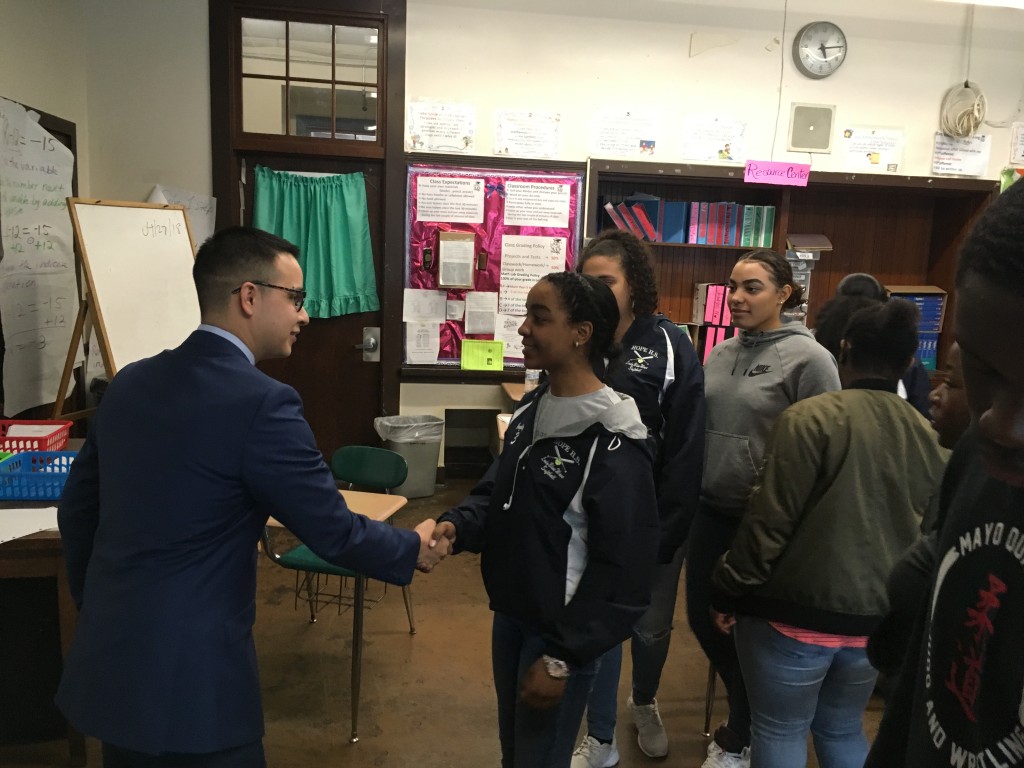
Lisanyis Gonzalez networks with Ray Nunez at the end of class as other students wait to do the same.
It just so happened that
3 Life Skills students were interviewing today for a Hope Life Skills PAID summer internship at the corporate offices of CVS Health
in Woonsocket, RI. CVS Health has been offering PAID summer internships for the past 7 years to Hope Life Skills students in a variety of corporate divisions like supply plain management, IT and pharmacy.
The internships are a competitive.
Students, after presenting their resumes to CVS Health staff for review, are interviewed by a CVS Health department coordinator. Internship winners will be announced in 2 to 3 weeks.
The Clifton Strength Assessment was created by Donald Clifton, an American psychologist and professor at the University of Nebraska.
Dr Clifton believed that focusing on strengths rather than weaknesses maximized personal performance and corporate success.
Dr Clifton’s theory states that each adult individual possesses a certain number of fixed universal personal-character attributes, defined by Dr Clifton as “talent themes,” which, combined together, result in an individual’s tendency to develop certain skills more easily than others. By focusing on these strengths, people are able to excel at certain jobs in a sustainable way. Focusing on personal strengths reduces employee turnover (i.e. people quitting), improves employee morale, and the organization’s overall performance.
The Gallup Organization, which now administers the strengths assessment, has interviewed over 1.7 million professionals in a number of different jobs at many companies and organizations. Dr Gallup came up with 34 distinct patterns, called “talent themes” or strengths, that best describe a range of human uniqueness. The complete range of talent themes or personal strengths are:
- Achiever – one with a constant drive for accomplishing tasks
- Activator – one who acts to start things in motion
- Adaptability – one who is especially adept at accommodating to changes in direction/plan
- Analytical – one who requires data and/or proof to make sense of their circumstances
- Arranger – one who enjoys orchestrating many tasks and variables to a successful outcome
- Belief – one who strives to find some ultimate meaning behind everything they do
- Command – one who steps up to positions of leadership without fear of confrontation
- Communication – one who uses words to inspire action and education
- Competition – one who thrives on comparison and competition to be successful
- Connectedness – one who seeks to unite others through commonality
- Consistency – one who believes in treating everyone the same to avoid unfair advantage
- Context – one who is able to use the past to make better decisions in the present
- Deliberative – one who proceeds with caution, seeking to always have a plan and know all of the details
- Developer – one who sees the untapped potential in others
- Discipline – one who seeks to make sense of the world by imposition of order
- Empathy – one who is especially in tune with the emotions of others
- Focus – one who requires a clear sense of direction to be successful
- Futuristic – one who has a keen sense of using an eye towards the future to drive today’s success
- Harmony – one who seeks to avoid conflict and achieve success through consensus
- Ideation – one who is adept at seeing underlying concepts that unite disparate ideas
- Includer – one who instinctively works to include everyone
- Individualization – one who draws upon the uniqueness of individuals to create successful teams
- Input – one who is constantly collecting information or objects for future use
- Intellection – one who enjoys thinking and thought-provoking conversation often for its own sake, and also can data compress complex concepts into simplified models
- Learner – one who must constantly be challenged and learning new things to feel successful
- Maximizer – one who seeks to take people and projects from great to excellent
- Positivity – one who has a knack for bring the light-side to any situation
- Relator – one who is most comfortable with fewer, deeper relationships
- Responsibility – one who must follow through on commitments
- Restorative – one who thrives on solving difficult problems
- Self-Assurance – one who stays true to their beliefs, judgments and is confident of his/her ability
- Significance – one who seeks to be seen as significant by others
- Strategic – one who is able to see a clear direction through the complexity of a situation
- Woo – one who is able to easily persuade (short for “Winning Others Over”)

